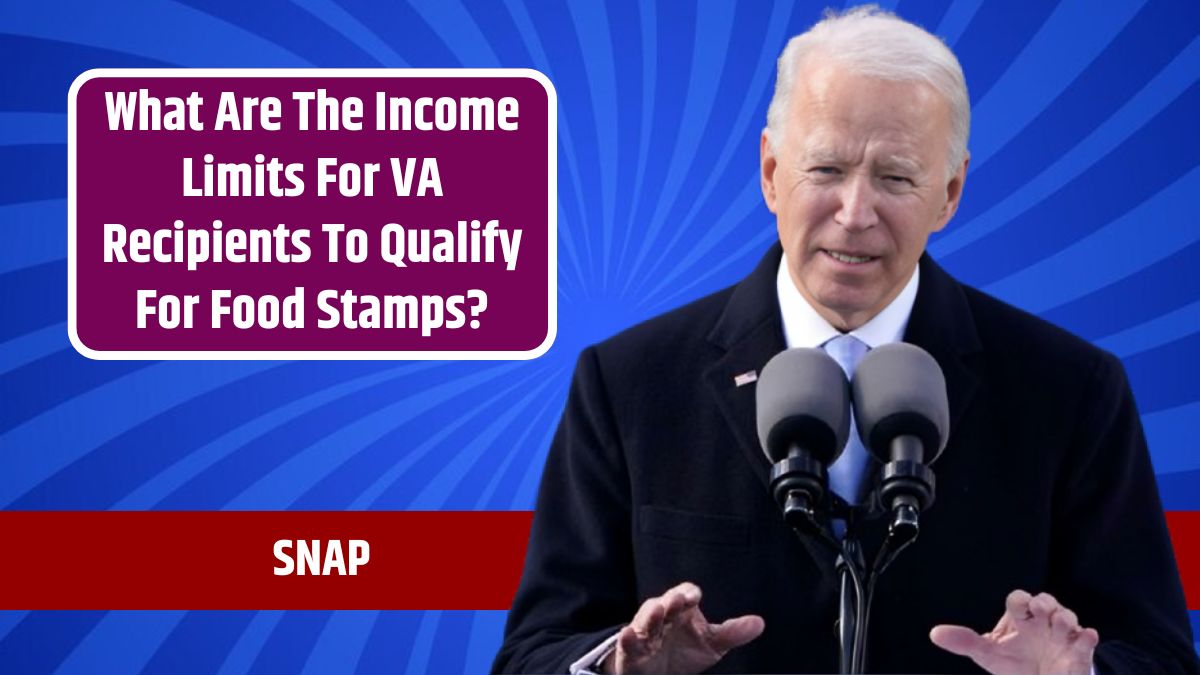Are you a veteran wondering if your VA disability benefits affect your eligibility for SNAP, also known as Food Stamps? You’re not alone. Many veterans find themselves in a similar situation, especially since nearly 7.5% of veterans face food insecurity. Programs like SNAP are designed to provide support, but it’s crucial to know how your income, including VA disability benefits, factors into your eligibility.
SNAP offers assistance to low-income individuals and families, but the program has strict income limits that can vary depending on your state and household size. So, how do VA disability benefits impact your chances of qualifying for SNAP? Let’s break it down.
Income
One of the key aspects to consider when applying for SNAP is how your VA disability benefits are counted. In most cases, VA disability benefits are classified as “unearned income.” This category also includes other sources of income like Social Security and pensions. When you apply for SNAP, your total household income, including these benefits, will be used to determine your eligibility.
Each state sets its own income limits, so your specific eligibility will depend on your location and the size of your household. As of 2023, a household of two typically needs to have a net income of $1,643 or less per month to qualify for SNAP. Along with income limits, you’ll also need to meet asset thresholds, which means that your savings or bank account balance shouldn’t exceed $4,250.
Deductions
One of the advantages of SNAP is that you may be able to subtract certain expenses from your income, lowering your overall countable income. For example, medical expenses can be deducted if they exceed a certain amount. Other deductions, like housing costs or child care, may also help reduce your net income and improve your chances of qualifying for benefits.
By knowing and using these deductions, you can potentially lower your net income enough to meet the eligibility requirements. If you’re near the income threshold, investigating all available deductions is a smart strategy.
Combat
Here’s some great news for combat veterans: Any pay you receive for combat or hostile fire, or from imminent danger, won’t be counted as income when applying for SNAP. This means that these payments won’t push you over the income limit, making it easier to qualify for benefits.
For veterans receiving this type of pay, it’s a significant advantage. Combat pay exemptions can make a difference in keeping you eligible for crucial assistance without penalizing you for serving in hazardous environments.
Special Rules
If you’re a veteran over the age of 60 or have a disability, special rules may apply when determining your SNAP eligibility. For instance, veterans who are permanently disabled, homebound, or receiving aid and attendance benefits are considered “disabled” for SNAP purposes. This classification can offer more flexibility in the application process, allowing you to meet the criteria more easily.
These special rules are designed to account for the unique circumstances of veterans who may face additional challenges due to their age or disability status.
Steps
Not sure if you qualify for SNAP? The best approach is to contact your local SNAP office or visit your state’s Department of Human Services website. Each state has its own guidelines, so double-checking is essential to ensure you meet the most up-to-date requirements. You can also visit the USDA’s official website for more information or to apply for benefits.
Taking the time to stay informed and verify your eligibility can ensure you’re getting the help you need. Many veterans have successfully navigated the process and received the assistance they deserve.
Programs like SNAP are designed to support veterans and their families in times of need, helping to provide access to nutritious food. By knowing how your VA disability benefits impact eligibility and using available deductions, you can increase your chances of qualifying. Be sure to look into all options and resources to ensure you’re making the most of your benefits.
FAQs
Do VA disability benefits count toward SNAP income?
Yes, VA disability benefits are considered unearned income.
Can combat pay affect my SNAP eligibility?
No, combat pay is excluded from SNAP income calculations.
Are there special SNAP rules for disabled veterans?
Yes, disabled veterans may qualify under more flexible rules.
How can I lower my income for SNAP eligibility?
You can deduct medical or other allowable expenses to lower your net income.
Where can I check my SNAP eligibility?
Contact your local SNAP office or visit your state’s Department of Human Services website.
